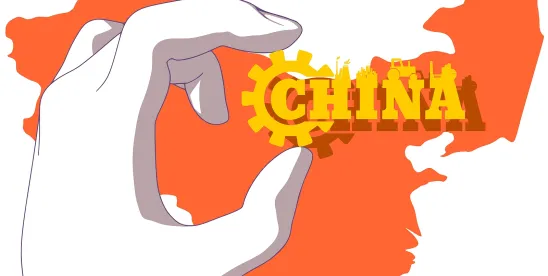On October 10, 2024, China’s Ministry of Justice (MOJ) and the National Development and Reform Commission (NDRC) issued “Law of the People’s Republic of China on Promoting Private Economy (Draft for Soliciting Opinions)” (中华人民共和国民营经济促进法(草案征求意见稿)) including several intellectual property provisions. This Draft may evidence further pushback against economic policies that have hurt China’s private companies and discouraged foreign investment. China has already released a “flurry of stimulus measures” and relaxed home buying restrictions in several cities. China’s Finance Minister Lan is also scheduled to hold a press conference on October 12, 2024 on “intensifying fiscal stimulus policies.”
 As explained by the MOJ and NDRC, “Comrade Xi Jinping…has attached great importance to the development of the private economy and has taken a series of major measures.” One of the goals of the Draft is “equal treatment and equal protection of the private economy through legal systems to ensure that all types of economic organizations enjoy equal legal status, market opportunities and development rights.”
As explained by the MOJ and NDRC, “Comrade Xi Jinping…has attached great importance to the development of the private economy and has taken a series of major measures.” One of the goals of the Draft is “equal treatment and equal protection of the private economy through legal systems to ensure that all types of economic organizations enjoy equal legal status, market opportunities and development rights.”
A translation of intellectual property provisions follow. Comments are due November 8, 2024.
Article 21 Banking financial institutions and local financial organizations shall, in accordance with laws and regulations, accept mortgages and pledges that meet the needs of loan business, and provide private economic organizations with loans secured by rights such as accounts receivable, warehouse receipts, equity, and intellectual property rights.
People’s governments at all levels and their relevant departments shall provide support and convenience for the registration, valuation, transaction circulation, and information sharing of movable property and rights pledges.
Article 30 The state guarantees that private economic organizations participate in standard-setting work in accordance with the law, and strengthens information disclosure and social supervision of standard-setting.
The state provides services and conveniences to private economic organizations in terms of infrastructure, technical verification, standards and specifications, quality certification, inspection and testing, intellectual property rights, and demonstration applications.
Article 31 Supports private economic organizations to strengthen the application of new technologies, carry out application experiments of new technologies, new products, new services, and new models, give full play to the role of technology markets and intermediary service agencies, and promote the application and promotion of scientific and technological achievements through intellectual property pledge, venture capital, and other means.
Private economic organizations are encouraged to voluntarily carry out technical cooperation based on business rules during the investment process. The conditions for technical cooperation shall be determined through consultation by all parties to the investment in accordance with the principle of fairness.
Article 33 The State shall strengthen the protection of original innovations of private economic organizations and their operators. The protection system for intellectual property rights of innovative achievements of private economic organizations shall be improved, and violations of trademark rights, patent rights, copyrights, commercial secrets, counterfeiting and confusion shall be punished in accordance with the law.
Strengthen regional and departmental collaboration on intellectual property protection, and provide private economic organizations with services such as multi-party dispute resolution, rights protection assistance, and guidance on responding to overseas intellectual property disputes and risk warnings.
Article 36 The production and operation activities of private economic organizations shall comply with laws and regulations on labor employment, production safety, occupational health, social security, ecological environment, quality standards, intellectual property rights, network security, fiscal and taxation, and finance, and shall not disrupt market and financial order, make profits through bribery and fraud, damage the ecological environment, or infringe upon the legitimate rights and interests of workers and the public interest.
State organs shall supervise and manage the production and operation activities of private economic organizations in accordance with the law.
The full text of the Draft is available here (Chinese only).



 />i
/>i

